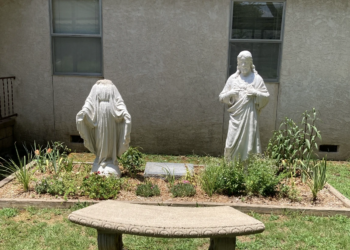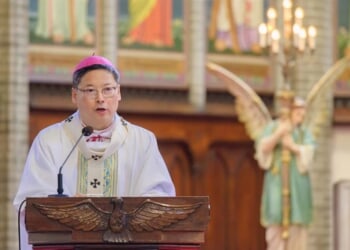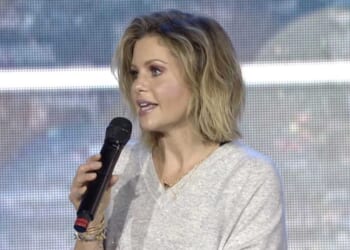Garvan Walshe is former national and international security policy adviser to the Conservative Party. He runs Article7 – Intelligence for democrats.
Georgians have been protesting against rigged elections for more than 215 days straight. They are in a standoff with a regime that refuses to concede, and which isn’t able to suppress popular discontent.
Against the wishes of Georgia’s people the ruling “Georgian Dream” movement is dragging the country away from Europe and towards Russia. Despite the fact that Russia invaded the country in 2008 and continues to occupy one fifth of its territory, pro-Kremlin oligarch Bidzina Ivanishvili has been able to take control of the country through largesse, patronage and now outright repression.
The regime has begun a new crackdown through its Tsulukani Commission, a sort of parliamentary star chamber. Failure to cooperate with it incurs a prison sentence and now opposition politicians Zurab Japaridze, Mamuka Khazaradze, and Badri Japaridze, Giorgi Vashadze and Nika Melia have been jailed as a result. Former defence minister Irakli Okruashvili is behind bars awaiting trial. Money has been seized from the bank accounts of independent newspapers, and journalists such as Mzia Amaghlobeli are in prison awaiting trial on exaggerated charges of slapping a police officer.
So far the international reaction has been relatively muted – probably because of a lack of “bandwidth” and this has allowed the regime to consolidate its power.
This is despite the strategic importance of the Georgian case. It is not merely a matter of a regime stealing power from its people but a struggle over whether Georgians are to once again be trapped within the Kremlin’s sphere of influence. If the regime can consolidate power it will prove a win for Putin: a former Soviet republic turned into a satellite state.
So far the regime has refrained from arresting female political leaders. The last legitimately elected President Salomé Zourabishvili addressed a huge demonstration on June 30. Opposition leader of the For the People Party, Anna Dolidze, appealed for help from the democratic world:
“Georgia is in a unique situation where most politicians are under arrest or under investigation. GD [Georgian Dream] aims to wipe out politics altogether. This requires much more than rhetoric from our partners.”
Nevertheless, no major foreign leaders have visited the protests. The UK has yet to impose sanctions on Ivanishvili — and even if it eventually does, the delay has given him plenty of time to hide his money. The United States, a stalwart friend of Georgian democracy under the George W Bush Administration has, gone AWOL under Trump.
It is left to the UK and our like-minded allies in Europe and beyond to put pressure on the regime. Summoning the Georgian chargé d’affairs to the Foreign office for a dressing down following the opposition arrests is a first step, but considerably more is needed.
First, the UK, major European countries, Japan and Canada should immediately demand fresh internationally observed elections, the release of political prisoners and the repeal of repressive laws targeting civil society, independent media and the right to protest.
While the GD regime in Tbilisi will not be expected to concede to these demands, This should serve to coordinate policy and establish justification for measures, such as including tougher economic sanctions, in the future.
The aim of any such sanctions should not be to change the behaviour of the regime leadership. That is likely to be beyond their influence. They can however influence the behaviour of the regime’s enforcement apparatus.
The suppression of a popular uprising requires very carefully calibrate threats and use of force. Too little, and the regime finds itself swept from power. Too much, and it provokes a backlash. The most important variable is the willingness of security forces to carry out orders to attack the public.
This can now be degraded in a more systematic way. Facial recognition systems, and open source intelligence techniques, already used by the authorities to target protesters, can also be used to identify officials (they may be masked when acting as riot police; but not when attending court or going around their usual business).
A clear legal framework can be drawn up allowing the imposition of visa bans and financial restrictions on members of the state apparatus (and their immediate families). which can be invoked in the event of a crackdown. “Titushky” — thugs employed by the regime to harass and intimidate opposition — can fall under the rubric of organised crime laws.
Such measures should not merely be announced by ministerial communiqués. They should be disseminated by strategic communications campaigns on conventional and social media. The regime’s enforcers need to know that taking part in repression comes with consequences.


![Man Arrested After Screaming at Senators During Big Beautiful Bill Debate [WATCH]](https://www.right2024.com/wp-content/uploads/2025/06/Man-Arrested-After-Screaming-at-Senators-During-Big-Beautiful-Bill-350x250.jpg)














